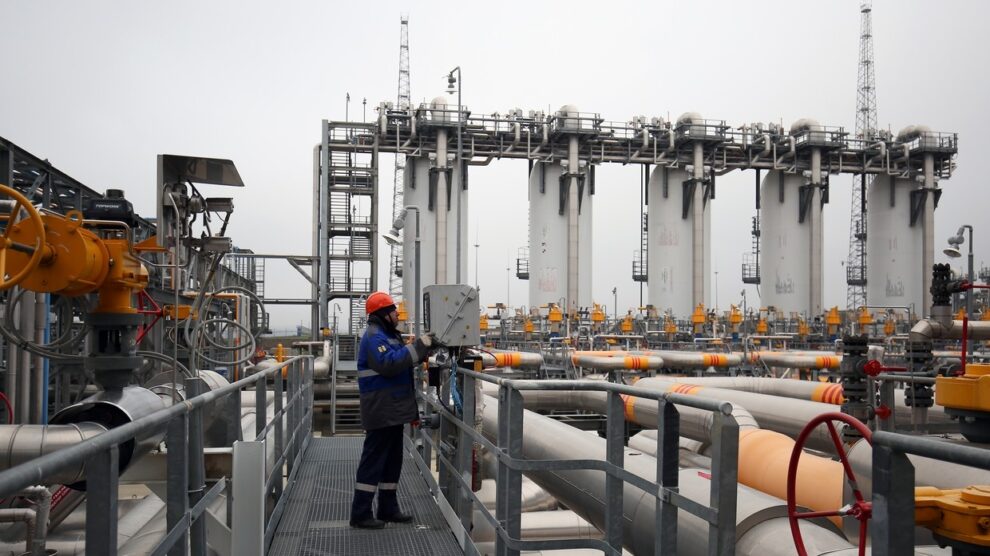While the country does not import the commodity for its own use, it is a transit hub for supplies entering the EU
The Bulgarian authorities have imposed a tax on Russian pipeline gas supplied through its territory to the broader EU, according to a law published on the official website of the Bulgarian parliament on Friday.
The new regulation comes into force immediately and introduces a tax of 20 Bulgarian lev ($10.76) per megawatt-hour, or roughly 100 cubic meters, of Russian natural gas transited through the country.
The charge makes up about 20% of the current cost of gas futures at the Title Transfer Facility (TTF) hub in the Netherlands, Europe’s benchmark for the commodity. It closed at around 55.1 ($57.9) per megawatt-hour on Friday, according to data from the London Intercontinental Exchange (ICE).
Until 2022, Russian energy giant Gazprom was one of the key suppliers of pipeline gas to Bulgaria. However, after the local authorities refused to pay for the fuel in rubles, direct exports to the Balkan country were halted.
While Bulgaria no longer imports gas from Russia for domestic use, it has remained one of the few routes for its delivery to the EU after flows shrank due to Ukraine-related sanctions against Moscow and the sabotage of the Nord Stream pipelines. According to Bloomberg estimates, roughly half of Russian pipeline gas destined for the EU currently goes through Bulgaria, entering via the TurkStream pipeline.
Experts warn that Bulgaria’s new tax could jeopardize supplies to a number of Southern European countries, including Hungary and Serbia, which continue to rely on Russia for most of their gas needs. Hungarian Foreign Minister Peter Szijjarto called the measure “unacceptable.”
“There seem to be new attempts to jeopardize the security of Hungary’s energy supply and make Hungarian-Russian energy cooperation, including natural gas transportation, impossible… For a European Union member state to threaten another EU member’s gas supply is contrary to European solidarity, rules, and is unacceptable,” Szijjarto said on Friday, while attending the ‘Russian Energy Week’ forum in Moscow. He added that both Hungary and Serbia are already taking steps to ensure that Bulgaria cannot apply the legislation to their gas imports.
Gazprom has not yet commented on the development, nor responded to media requests for its reaction.
Source : Big News Network
















